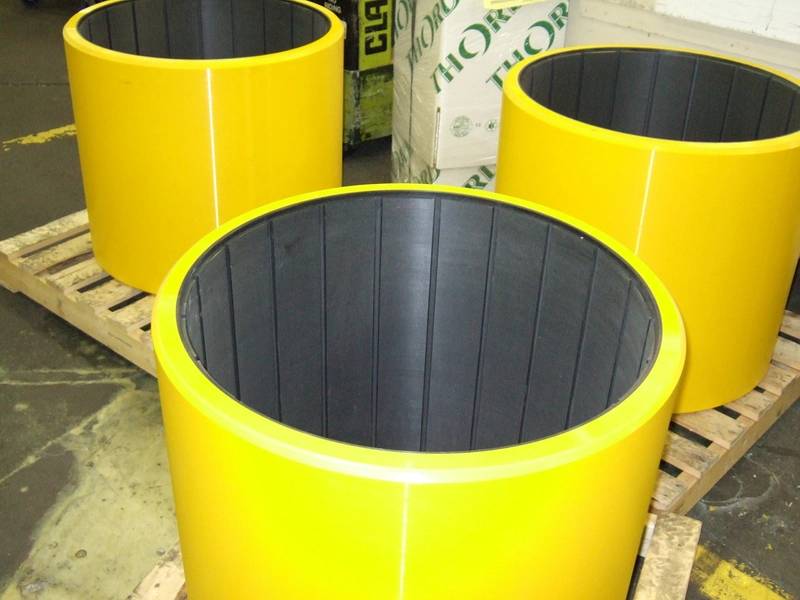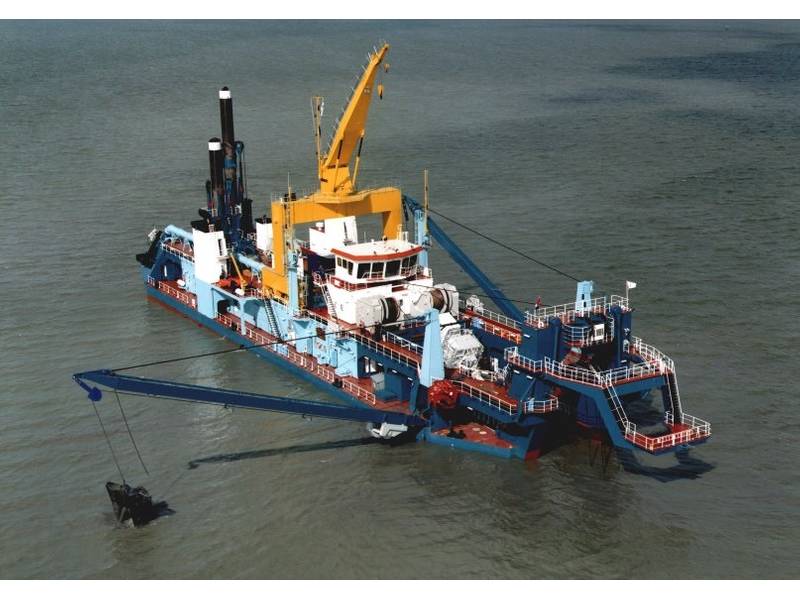Cutterhead Shaft Bearing as Good as New After 10 Years of Dredging
After 10 years and more than 100,000 operating hours dredging up silt, sand, rocks and stones in some of the toughest marine environments imaginable, the Thordon Composite bearing installed on the Al Mirfa’s dredge cutter head shaft has emerged unscathed.
In drydock where the NMDC-owned dredger is being upgraded, Thordon Bearings’ Dubai-based distributor, Ocean Power International, expected that even the ‘unbreakable’ might need replacing after such demanding workloads, but it didn’t. “The Composite bearing was still in perfect working condition,” said Rafid Qureshi, Managing Director, Ocean Power International Inc.
Maarten Jansen, Thordon Bearings’ Regional Manager, said: “The water-lubricated Composite bearing was installed in 2007 to the Royal IHC-built vessel, a 97m heavy duty cutter suction dredger. These dredgers operate in some very tough environments, which require a tough, durable bearing capable of withstanding the excessive wear and tear encountered during dredging operations. These vessel types place inordinately high loads on the cutter shaft bearing which, in the past, often resulted in the replacement of traditional greased bronze and rubber bearings every six to eight months. That the Thordon solution didn’t need replacing after ten years of heavy duty service is indicative of the durability and robustness of the materials we use in all our polymer bearings.”
Composite bearing wear rates in the abrasive conditions most dredgers operate are typically half that of rubber bearings, reducing maintenance downtime over the life of the vessel. But performance was not the only reason why the dredging sector has moved away from traditional bearing materials.
“With the emergence of more stringent environmental regulations in the late 1990s most dredgers are now fitted with water-lubricated cutter shaft bearings, said Jansen. “Dredgers have to operate in some very ecologically sensitive environments and owners cannot risk polluting seas and sediments with grease and oil. For dredger owners, a water-lubricated cutter shaft bearing is often a key factor in being awarded these sensitive area projects.”
Craig Carter, Director of Marketing and Customer Service, Thordon Bearings, said: “Since their market introduction in the 1970s, the Thordon Composite bearing has consistently outperformed rubber in dredge cutterhead bearing applications.”
The actual bearing surface is a black homogeneous material called GM2401 which is fused to a stiff, high strength polymer sleeve to provide unprecedented performance and environmental safety. They are available for a wide range of shaft diameters in both tube and stave configuration.
Upgrade work includes the installation of the latest versions of the IHC Dredge Profile Monitor and Automatic Cutter Controller along with the installation of a dredge fleet monitoring system. NMDC opted to install the most recent versions of these automation systems to ensure its vessels are fully up-to-date and to enhance the efficiency of its operations.
Work is scheduled for completion in the first half of 2017.


